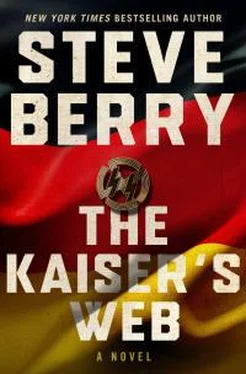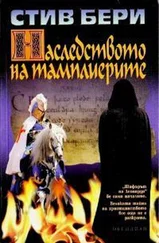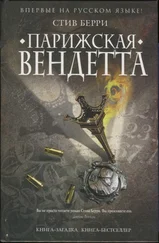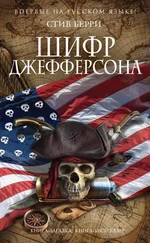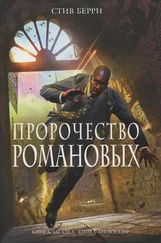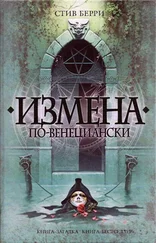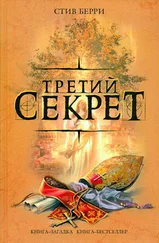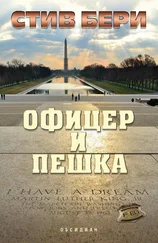He took a seat beside his host and said, “I spoke with my superior. He’s left the matter to my discretion.”
“Former president Daniels?”
“You are well informed.”
“It’s kept me alive a long time.”
“How wide is your information network?”
“Enough for me to know what I need to know.”
Might as well take advantage of that. “So who killed Hanna Cress in that police station?”
“That was Theodor. Or more precisely, the man who works for him, Josef Engle. When the chancellor had her arrested, my guess is it seemed like a way to add greater emphasis to the information he was peddling. Cress’ task was surely to deliver those documents and spur the investigation along. Killing her just made it that more enticing. Ada was monitoring things closely in Chile. Pohl and Engle would have surely manipulated the investigator Eisenhuth sent. But when Danny Daniels came along and involved you and Fräulein Vitt, that offered an even better means of achieving their goal.”
“Nice to be so appreciated. Unfortunately, that investigator gave his life.”
“I know. It’s awful.”
An understatement.
“Ada told me what Theodor was doing, using my name with the chancellor, tossing out bait. I was unsure how this was going to play out and, I must confess, I still am.”
“Where did the documents come from on Bormann that were provided to the chancellor? I read them. Some carried the seal from the Soviet archives.”
Schüb nodded. “I obtained them, and much more, a few years ago. I purchased a lot of original information from Moscow, once the Soviet archives became available, purging that repository. Das Leck was real. There really was a Soviet spy in the Führerbunker. Stalin knew everything that happened there. That’s what made it easy for him to deceive the West that Hitler might still be alive. But some of what you read was prepared by me long ago, and given to Theodor. Accounts of my encounters with Bormann. I also provided him with some of the actual Soviet documents, back when we were on speaking terms.”
“He never knew of Jan?”
Schüb shrugged. “I always maintained a distance between my two lives. He knew of him. That’s all. Jan knew only what I told him, and though Theodor knew Jan existed, he cared only about himself. It was actually quite easy to keep them separate.”
In the German’s lap he noticed the photographs from the hacienda and the scrapbook, along with the letters Ada had provided. He’d given them to Schüb earlier, when they returned from the bank.
“Reminiscing?” he asked.
The old man nodded.
“Is that you in the picture?”
“It is, when I was young. I went to Chile with my mother and Ada after the war. I was barely twenty. Just a youth who showed promise. My father bought me the uniform. Many retained a hope that the fascist movement could be revived. But by 1950 that hope had evaporated into self-preservation. Hollywood and fiction writers like to proclaim that Nazis continued to exist, but the movement died, as they do, simply from a lack of leadership. You see, in this world there are captains and lieutenants. One leads, the other follows. Bormann thought himself a captain, but he was merely an okay lieutenant.”
“History portrays him a bit differently.”
Schüb chuckled. “I know, and it would be fascinating to see his reaction. Hitler called him his most loyal party comrade and supposedly said that he could not win the war without Bormann.” The old man shook his head. “Just another example of Hitler’s inability to understand people.”
“You probably knew Bormann better than anyone who ever lived.”
“That’s true. He became a lifelong study of mine. Many never realized that he came to the Nazi Party late, only in 1926. So the alte kampfler, the old fighters, who’d been there since the beginning, ignored him. Of course, ignoring Martin Bormann is a fatal mistake. He worked better from the shadows. He was diligent, determined, organized, tactical, cunning, and possessed of an extraordinary memory. He was the one who turned Hitler’s chaotic orders into coherent commands. As I said, he taught me many things. But three stuck with me. Always blame others. Leave no trail on anything you do. And help those who can either hurt or help you—the benefit is the same.
“In the end all he wanted was the money, which he completely controlled. Unfortunately for all of the others in South America, on the run and scared, Bormann held the only key to the bank. Eichmann tried to implicate him before the Israelis hung the bastard, but to no avail.”
The old man was talking, finally. Filling in the gaps. And he needed that filler badly. “Why did Bormann want you?”
“He didn’t. My father recommended me and I initially performed several minor tasks to his satisfaction. Thankfully, he was a man of needs. He understood how to placate those above him, while abusing those beneath. That was how he ingratiated himself to Hitler. So it was easy for someone like myself to make a similar impression. Of course, it helped that he was completely dependent on others. He could do little for himself, as it might risk exposure. Only I, and a few others, even knew he was alive. Eventually, only I remained.”
The old man went silent, lifting his picture from over half a century earlier to his oily eyes. “Ada kept this photo a long time.” Schüb shook his head. “She is a good sister. Sadly, she’s never met Jan. I’d like to rectify that.”
Schüb laid the photo back in his lap atop the letters he’d sent to his sister. He seemed to steel himself, duty taking hold of emotion.
“I have been following matters in Europe. The new right is gaining support by the day. Exactly as Bormann predicted.”
He waited for the old man to explain.
“He made clear to me on many occasions Hitler’s errors. He loved to tell me how Germany could have easily won the Russian campaign politically, while a military victory was impossible. The territory was simply too vast to adequately supply an army of the size needed to win. But the people there hated Stalin. Treated right, they would have welcomed the Germans as liberators and supplied an army to defeat the communists. Instead, Hitler murdered them by the thousands, and they came to hate Germans worse than Stalin. Foolishness, Bormann would say.”
“Wasn’t he in the chain of command for those decisions? As I recall, one of his duties was to supervise the local governors. The Gauleiters. They reported straight to Bormann.”
“He would never admit any complicity. He said Hitler made all those decisions.”
“That’s crap.”
“I agree. But I never argued, I simply listened. Both he and Hitler ordered millions to their deaths. And that is the true absurdity of their folly. There was no national interest that mandated the slaughtering of Jews, Romani, priests, Slavs, and the mentally ill. Hitler was not a conqueror, unlike Alexander or Napoleon. He was a mass murderer, and that was, without question, his greatest flaw.”
“And Bormann had a better idea?”
“More a vision. He believed power could be both obtained, and maintained, through a careful attention to organization and detail. After all, he managed to do that with Hitler. His weapons were not guns or bombs. Only words. He butchered millions simply with memoranda. He adhered religiously to something Hitler once said. The masses have little time to think. And how incredible is the willingness of modern man to believe. Ultimately, he pressed that philosophy on to Theodor with an equal fervor.”
“He was right. It’s how every despot manages to obtain power.”
“At present, in France, Italy, Austria, Belgium, Denmark, the Netherlands, Hungary, and even here, in Switzerland, the people are poised to shift toward the new right. These are not simply conservatives. These are ultra-radicals, and they are gaining power. I believe it is Theodor’s desire to place Germany at the forefront of this revolution. He is the strongest of the contenders for immediate power and the only one, at the moment, on the verge of obtaining a national consensus. The idea is most certainly to affect the European Union parliamentary elections scheduled in a few months. That’s where they want to gain real control. Bormann said many times that history never repeats itself through actual events. But there are parallels. I would agree, there is no indication Germany will regress to barbarism, but who would be foolish enough to believe that the Bormanns currently among us have no opportunity to flourish. Theodor could well be the catalyst that launches them all.”
Читать дальше
